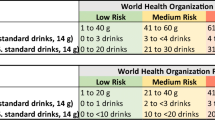Abstract.
Rationale: Explicit memory (EM) is the memory for events which occurs with full awareness of where and how the recalled events took place, whereas implicit memory (IM) is the memory which is unfolded without any awareness of these events and usually becomes apparent when performance is facilitated by its presence. These two types of memory can be understood as different systems. Findings attempting to differentiate between the two systems in normal subjects have been controversial, with some researchers arguing that there is a single memory system and only the match in processes used during learning and later at retrieval can be important. Objectives: The present study compared the effects of alcohol (0.8 g/kg) or placebo administered prior to encoding and/or retrieval on measures of explicit and implicit memory in terms of recollective experience and familiarity. Methods: At encoding subjects studied a list of 80 words presented in pairs. At retrieval, participants first carried out an implicit stem completion task, followed by an explicitly cued recall task (stem completion) which measured IM and EM respectively. After stem completion participants were required to indicate whether the items from the studied list were consciously recollected ("remember" response) or was known for a fact that were presented in the studied list ("know" response). In the IM task completed items from the studied list but not recognised by the subjects as such indicated memory without awareness. Studied items were of high and low associations. Forty-eight participants were tested in one of four drug conditions: alcohol-alcohol, placebo-placebo, placebo-alcohol, alcohol-placebo. Results: In the implicit stem completion task, alcohol did not affect overall correct completion rates. However, participants who received alcohol prior to encoding reported lower awareness of correctly completed study items. In the cued recall task, alcohol also did not affect overall performance. However, participants in the same drug-state conditions (SS) reported greater recollection than familiarity with study material, whereas participants who encoded and retrieved material in different drug-state conditions (DS) reported recollection and familiarity to the same extent. In addition, DS participants showed more familiarity with study material compared to SS participants. Direct comparisons between IM and EM tasks demonstrated that alcohol at retrieval decreased the cued recall of items from high associations compared to placebo, but did not have any effect on implicit stem completion. Conclusions: In summary, these results demonstrate a dissociation of alcohol effects on measures of EM and IM. Alcohol administered prior to encoding reduced awareness of implicitly retrieved material, but did not impair IM per se, confirming previous findings with alcohol. In addition, the data provided new evidence for state-dependent retrieval effects on EM but not IM. It was also shown that for explicitly retrieved items, recollective experience benefits from same drug state, whereas familiarity benefits from different drug state between encoding and retrieval.
Similar content being viewed by others
Author information
Authors and Affiliations
Additional information
Electronic Publication
Rights and permissions
About this article
Cite this article
Duka, T., Weissenborn, R. & Dienes, Z. State-dependent effects of alcohol on recollective experience, familiarity and awareness of memories. Psychopharmacology 153, 295–306 (2001). https://doi.org/10.1007/s002130000564
Received:
Accepted:
Published:
Issue Date:
DOI: https://doi.org/10.1007/s002130000564



